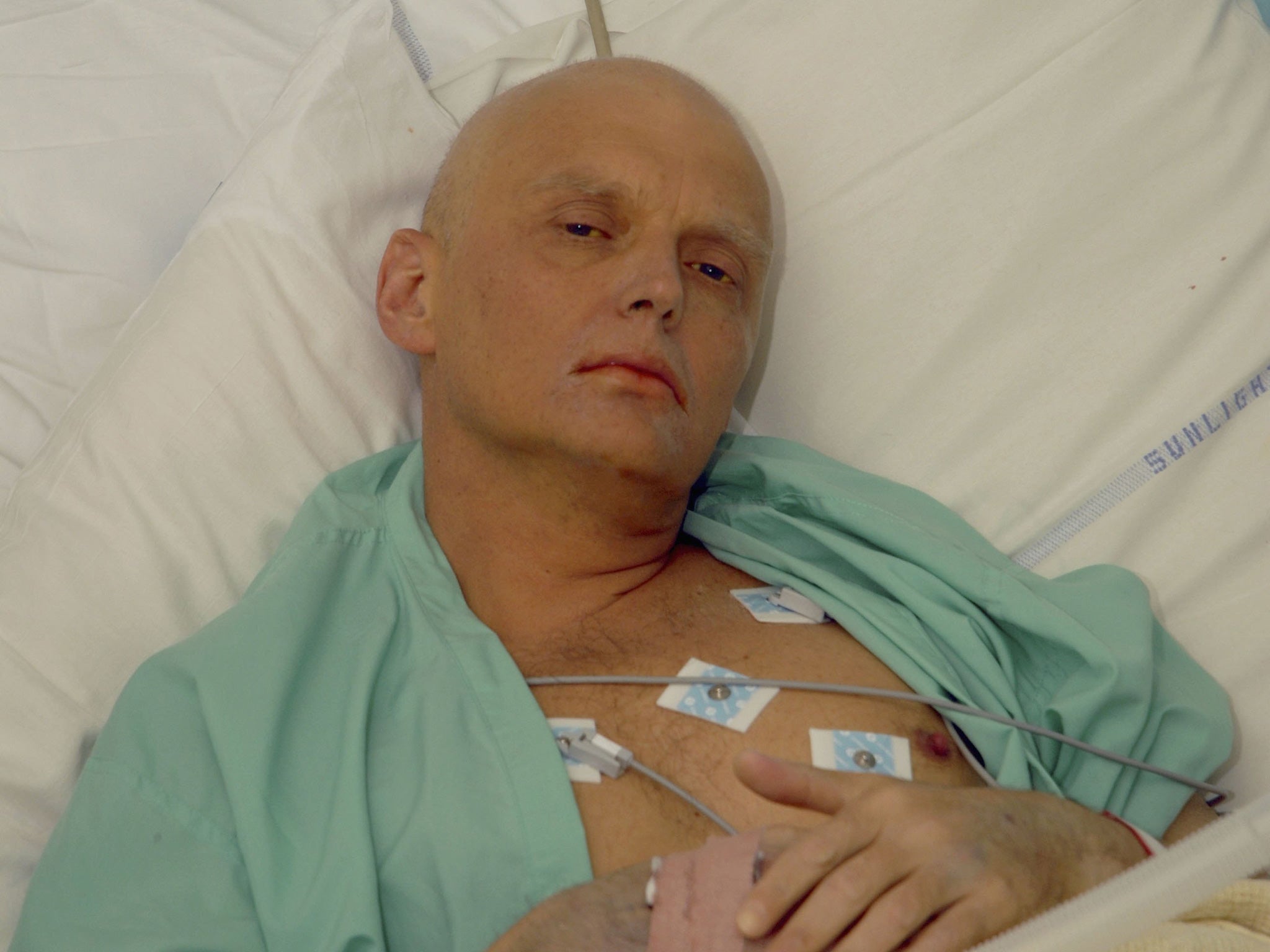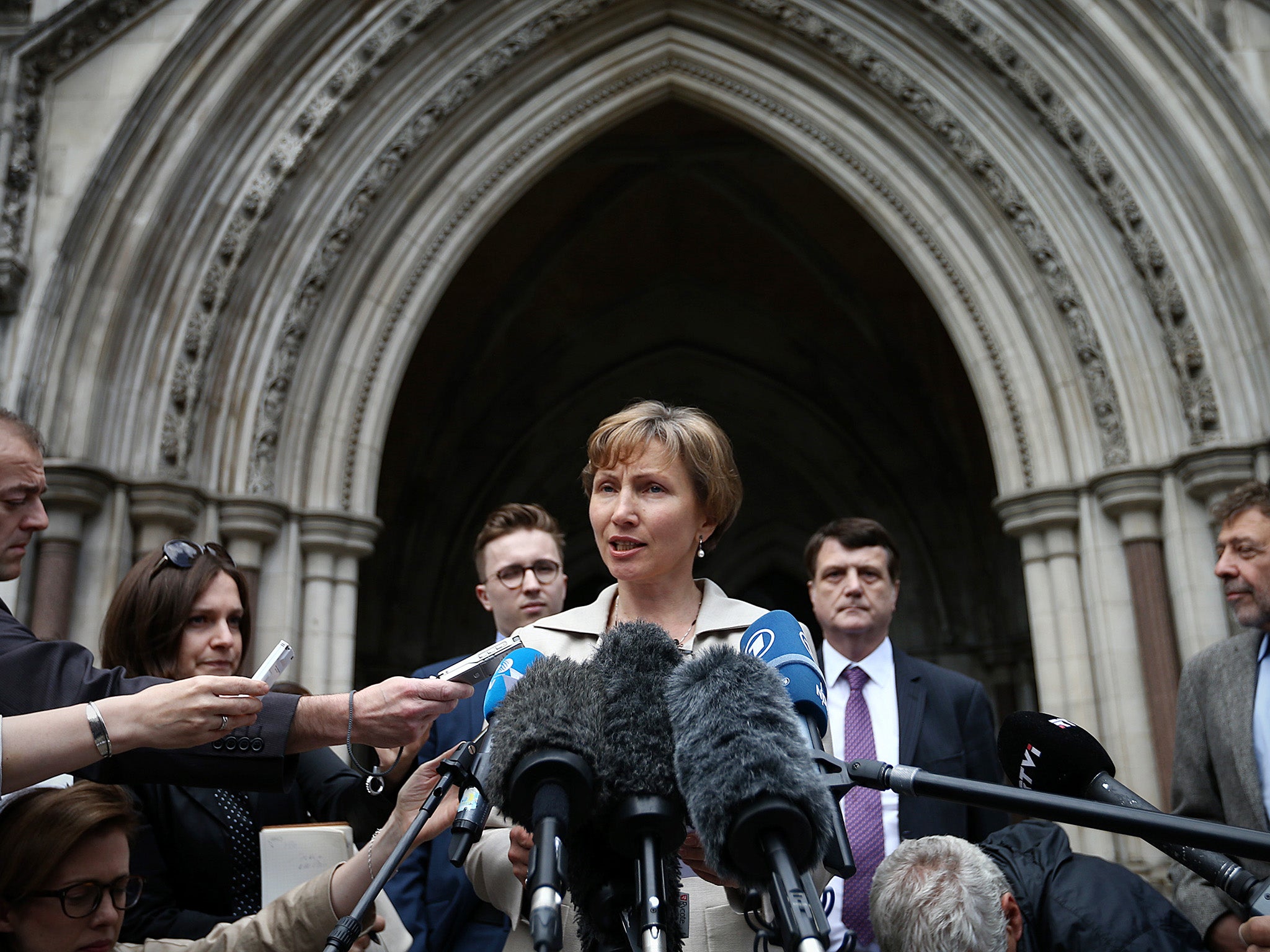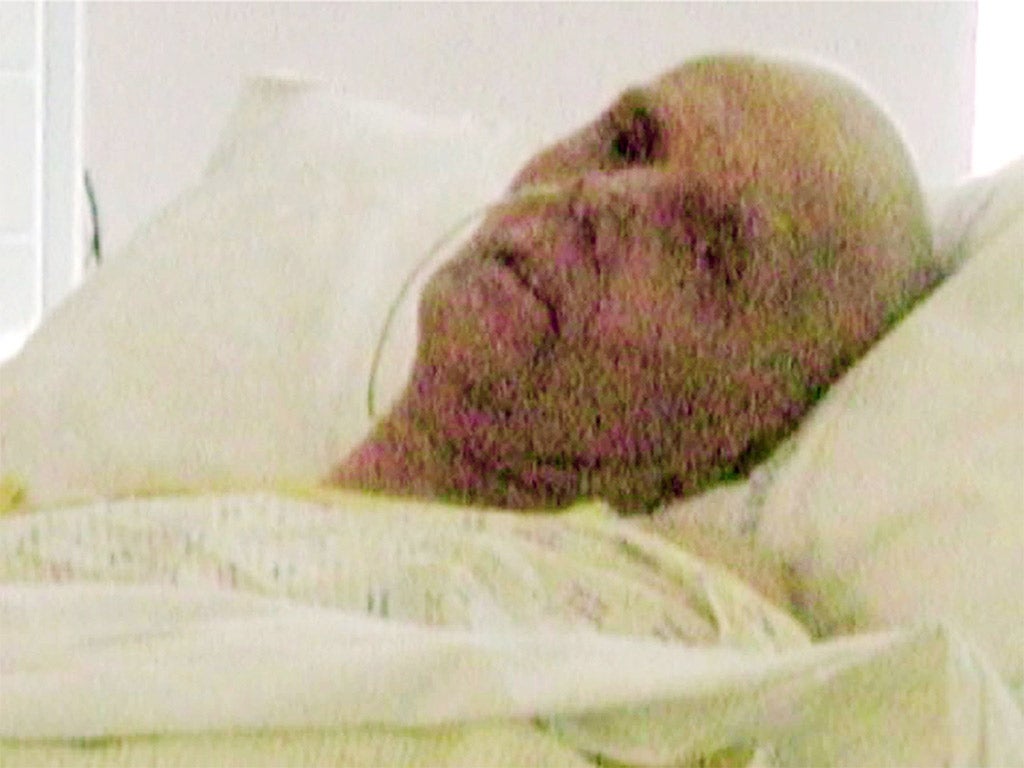Vladimir Putin 'probably' approved poisoning of Alexander Litvinenko, finds inquiry
Sir Robert Owen’s report found that the operation was likely to have been directed by the FSB
President Vladimir Putin probably approved the murder of the spy Alexander Litvinenko, an inquiry found today in a decision likely to spark a furious diplomatic reaction from Russia.
The explosive finding comes nearly a decade after the 43-year-old was killed after radioactive polonium-210 was slipped into his tea at a London hotel.
Inquiry chairman Sir Robert Owen’s 300-page report said that two Russians Andrei Lugovoi and Dmitri Kovtun were probably acting under the direction of Moscow's FSB intelligence service when they poisoned Mr Litvinenko with radioactive polonium 210 at the Millennium Hotel in Mayfair.

Singling out then-FSB chief Nikolai Patrushev alongside Mr Putin, Sir Robert wrote: “Taking full account of all the evidence and analysis available to me I find that the FSB operation to kill Litvinenko was probably approved by Mr Patrushev and also by President Putin.”
Police concluded that Alexander Litvinenko, a former KGB agent who left Russia and claimed asylum in the UK in 2000, died in November 2006 after consuming the fatal dose during a meeting with Kovtun and Lugovoi, who were identified as prime suspects. However, attempts to extradite the pair, who both deny involvement, have failed.
In his findings, Sir Robert said there was also “undoubtedly a personal dimension to the antagonism” between Mr Putin and Litvinenko. Tensions dated back to their only face-to-face meeting in 1998, when Mr Putin was head of the FSB and Litvinenko wanted him to bring in reforms.
The dissident made “repeated highly personal attacks” on the President after seeking asylum in the UK in 2000, including an allegation of paedophilia in July 2006.

"I am satisfied that in general terms, members of the Putin administration, including the president himself and the FSB, had motives for taking action against Litvinenko, including killing him, in late 2006," Sir Robert wrote.
Although evidence was "circumstantial", other cases suggested that "in the years prior to Litvinenko's death the Russian state may have been involved in the assassination of Mr Putin's critics".
Mr Litvinenko's widow Marina said outside the High Court she was "very pleased that the words my husband spoke on his deathbed when he accused Mr Putin have been proved by an English court."
Mr Lugovoi is now an MP in the Duma in Moscow; three weeks into the public inquiry last year, President Putin awarded him a medal for “services to the motherland”.
The lethal attack was described by his wife’s lawyers as an act of “state-sponsored terrorism” that put thousands of lives at risk. MPs described it as a military and nuclear attack on the streets of London. Officials in Moscow claim that Mr Litvinenko was involved in an illicit trade in polonium and poisoned himself.
Tony Brenton, who was British ambassador to Russia at the time of the killing, said that ”tearing up“ diplomatic relations with Russia was ”not in Britain's interests“.
"We have quite important other fish to fry with the Russians. They are very important in carrying the Iran de-nuclearisation through, they are absolutely crucial in sorting out the mess in Syria."
On his deathbed, Mr Litvinenko accused Mr Putin of ordering his assassination. Here is what he said:
I would like to thank many people. My doctors, nurses and hospital staff who are doing all they can for me, the British police who are pursuing my case with vigour and professionalism and are watching over me and my family.
I would like to thank the British government for taking me under their care. I am honoured to be a British citizen.
I would like to thank the British public for their messages of support and for the interest they have shown in my plight.
I thank my wife Marina, who has stood by me. My love for her and our son knows no bounds.
But as I lie here I can distinctly hear the beating of wings of the angel of death.

I may be able to give him the slip but I have to say my legs do not run as fast as I would like.
I think, therefore, that this may be the time to say one or two things to the person responsible for my present condition.
You may succeed in silencing me but that silence comes at a price. You have shown yourself to be as barbaric and ruthless as your most hostile critics have claimed.
You have shown yourself to have no respect for life, liberty or any civilised value.
You have shown yourself to be unworthy of your office, to be unworthy of the trust of civilised men and women.
You may succeed in silencing one man but the howl of protest from around the world will reverberate, Mr Putin, in your ears for the rest of your life.
May God forgive you for what you have done, not only to me but to beloved Russia and its people.

